Past experience suggests that the postwar outcome in Ukraine could be a destabilised and failing state. Win, lose or stalemate, the postwar environment in Ukraine is likely to pose significant challenges for the EU and NATO.
Read more

Past experience suggests that the postwar outcome in Ukraine could be a destabilised and failing state. Win, lose or stalemate, the postwar environment in Ukraine is likely to pose significant challenges for the EU and NATO.
Read more
Despite expectations in some quarters that the Americans would stamp their world view and priorities on the G7, it is clear from how the communique deals with Russia and China that the European concern for strategic autonomy was influential in its drafting. President Biden’s hopes for a strong position against China did not materialise as Russia received greater attention.
Read more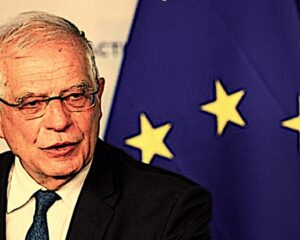
The Europeans won’t join with the like-minded allies massing behind America’s banner of democracy militant. While they will add theirs to other voices standing up for human rights, international laws and norms, and multilateralism, the EU won’t follow Biden’s clarion call into an all out multi-spectrum confrontation with China. Is there a lesson here for Australia?
Read more
This Egmont Security Policy Brief notes that for many Western governments, there still is a lot of hesitation and bewilderment on how to deal with Russia. A first step in defining a coherent policy vis-a-vis Russia, is trying to understand the motivation and objectives of Russian foreign policy, as well as its weaknesses.
Read more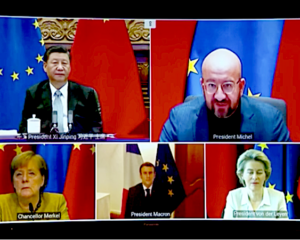
European Union and China leaders agreed a business investment deal on Wednesday, 30 December 2020, the Comprehensive Agreement on Investment. The EU hopes the deal will give European companies greater access to Chinese markets, and helping redress what Europe sees as unbalanced economic ties with China.
Read more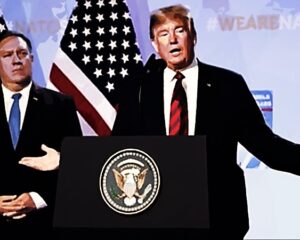
In Paris on Monday,16 November 2020, US Secretary of State Mike Pompeo said that the US administration and Europe need to work jointly on addressing recent “aggressive” actions led by Turkey – before continuing his 7-country tour, landing in Istanbul on Monday night. In Washington, a US official confirmed that last week US President Trump considered a strike on Iran’s main nuclear facility.
Read more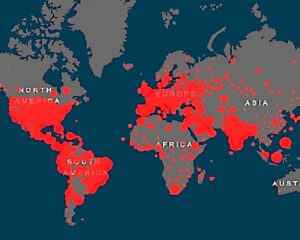
The coronavirus pandemic has thrown a harsh spotlight on the state of global governance. Faced with the greatest emergency since the Second World War, nations have regressed into narrow self-interest. The concept of a rules-based international order has been stripped of meaning, while liberalism faces its greatest crisis in decades. In this Lowy Institute publication, the French Institute for International Relations (IFRI)’s Bobo Lo argues that it’s time to rethink global governance and its priorities.
Read more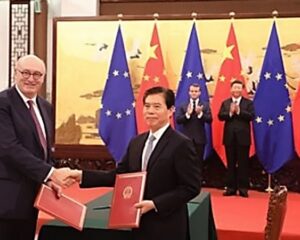
The current European Commission has set the defence and reform of multilateralism as one of its key priorities. In this ideas paper from the EU Parliament’s Research Service, Elena Lazarou tackles the question of how to achieve the EU’s objective in an environment where coronavirus has exacerbated the struggle to uphold multilateralism in a climate of growing nationalism, protectionism and rising great power competition.
Read more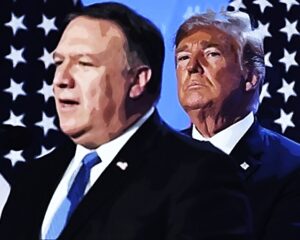
US Secretary of State Mike Pompeo has called for an “a new grouping of like-minded nations, a new alliance of democracies”. By bringing together its European and Asian allies under American leadership, the US hopes to bring them into line with its own China strategy. But an “alliance of democracies” would not really be an alliance with the US – it would be an alliance for the US, to further the American interest, to which the interests of its allies would inevitably end up being subordinated.
Read more
Secondary sanctions are a potent form of economic coercion that allows the US to extend its jurisdiction well beyond its borders, enabling interference in other nations’ foreign policy independence and infringing other nations’ sovereignty. Knudsen argues that economic autonomy depends on displacing the US from the central role in international finance.
Read more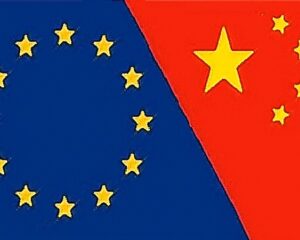
A detailed, informative and comprehensive policy paper covering the span of the current state of EU-China relations as the growing economic power of China, and Europe’s awkward situation in the US-China trade war, puts enormous pressure on the EU to find a way to manage relations with China.
Read more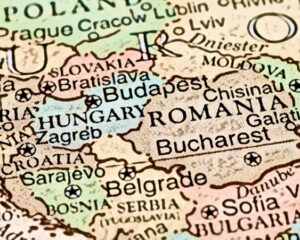
A survey of Central and Eastern European countries exposes the shallow roots of liberal democracy, with significant numbers indicating that they would trade off democratic freedoms for greater security, welfare, and preservation of traditional values. In only half of surveyed countries would a majority of the respondents choose liberal democracy over an autocratic leader.
Read more
The Belgrade Centre for Security Policy (BCSP) has produced a disturbing report on what it describes as the “deliberate political undertaking in which political actors use the consequences (both real and imagined) of the previous government as justification for the complete capture of the state’s institutions” in Serbia. At a time when the EU is struggling to live up to its core political values, the Serbian government’s commitment to the rule of law and separation
Read more
After COVID, the world may once again be flat and hyperconnected. Alternatively, coronavirus may be a turning point in the era of globalisation.
Read more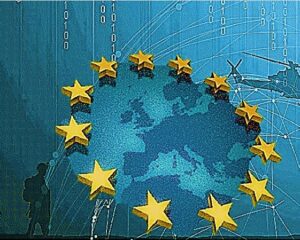
This German Council on Foreign Relations policy brief suggests that the COVID-19 pandemic could see Europe heading for a much deeper recession than the economic downturn after the 2008 financial crisis. The brief argues that governments can act to mitigate the effect on national defense sectors, but that to safeguard political and defense priorities, the EU and NATO States need to act jointly and decisively.
Read more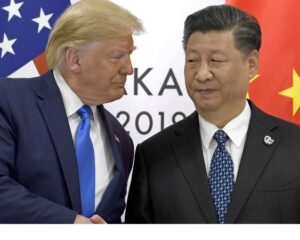
The COVID-19 crisis will affect the global geostrategic situation in a number of ways. Economic conditions within nation states and across the globalised world will have shifted; governments will be juggling austerity policies, tax increases and welfare demands. Liberal and democratic values, and confidence in political leadership, are likely to have suffered. And internationally, the future geostrategic situation could turn on whether China or the US bounces back best from the current predicament.
Read more
This paper provides a summary of the recent Standard & Poor’s (S&P) economic forecast for the euro area (assessing the effects of the COVID-19 outbreak); some recent analyses of the macroeconomic effects of the coronavirus; and some policy recommendations made in the public domain to mitigate these negative effects. The S&P summary On Thursday, 26 March, the credit-rating agency Standard & Poor’s (S&P) published an economic forecast for the euro area and the UK, assessing
Read more
In a Deutsche Welle opinion piece published 23 March 2020, Frank Hofmann calls for recognition by European and international leaders that multilateral crises cannot be resolved unilaterally; for political leaders to realise that they have an obligation to reverse the relapse into unilateral answers to the coronavirus crisis; and for resistance to the pursuit of policies of discrediting the work of international institutions by nationalists and populists throughout the world. He notes that there was
Read more
This report discusses two main questions: What is the relevance of Chinese involvement in European ports for China’s political influence in the European Union? What are the long-term implications for the Netherlands of the Maritime Silk Road, in particular in regard to Chinese involvement in European ports?
Read more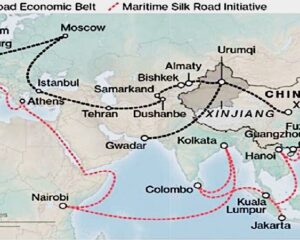
China’s Belt and Road Initiative opens a clear set of crossroads for the EU. The report’s authors Cornell and Swanstrom ask, has the EU payed enough attention to the geopolitics? And should the EU focus more on European interests, and not only on norms and values?
Read more